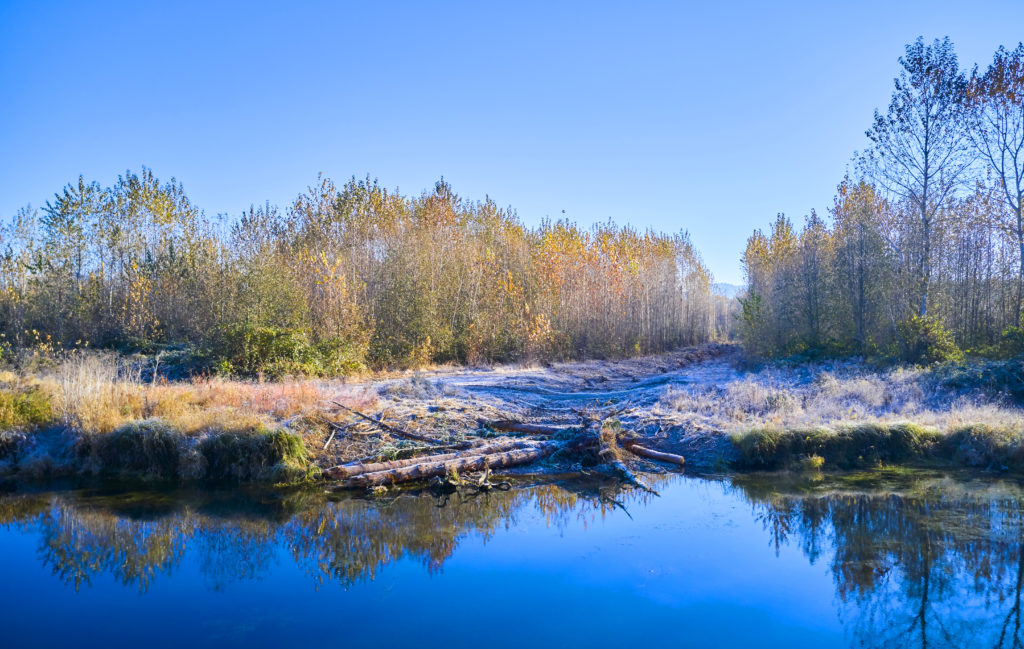
From frogs to fish, beavers, and otters, our rivers are home to an incredible abundance of animals. Reconnecting our rivers to allow for water to slow and spread not only improves water quality and retention on the landscape but also provides important habitat for the beloved animals around us.
This fall, contractors worked on Green Island to restore connections between land and water. This latest swale reconnection project, funded by the Oregon Watershed Enhancement Board, builds on years of investments in this area.
Beginning in the 1930s, Green Island was slowly converted to agricultural use. However, farming in an active
floodplain was not without challenges. Equipment often sunk into deep, wet soils, and ongoing flooding created issues. In the early 2000s, family matriarch Karen Green worked with the Trust and many partners to give the land back to the river.
Since purchasing the property in 2003, we have worked alongside our community to help make that vision a reality. We’ve removed more than 6 miles of levees and planted over a million trees and shrubs. Acre by acre, we’ve worked in partnership with the land and water here to do the hopeful work of seeding a forest for future generations to enjoy.


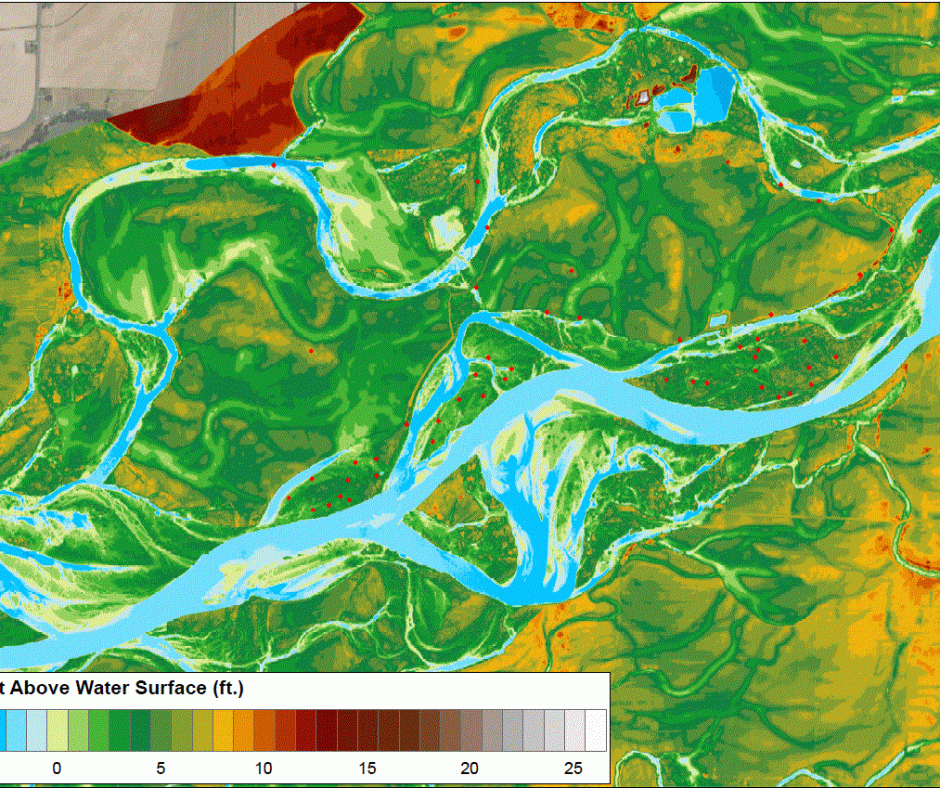
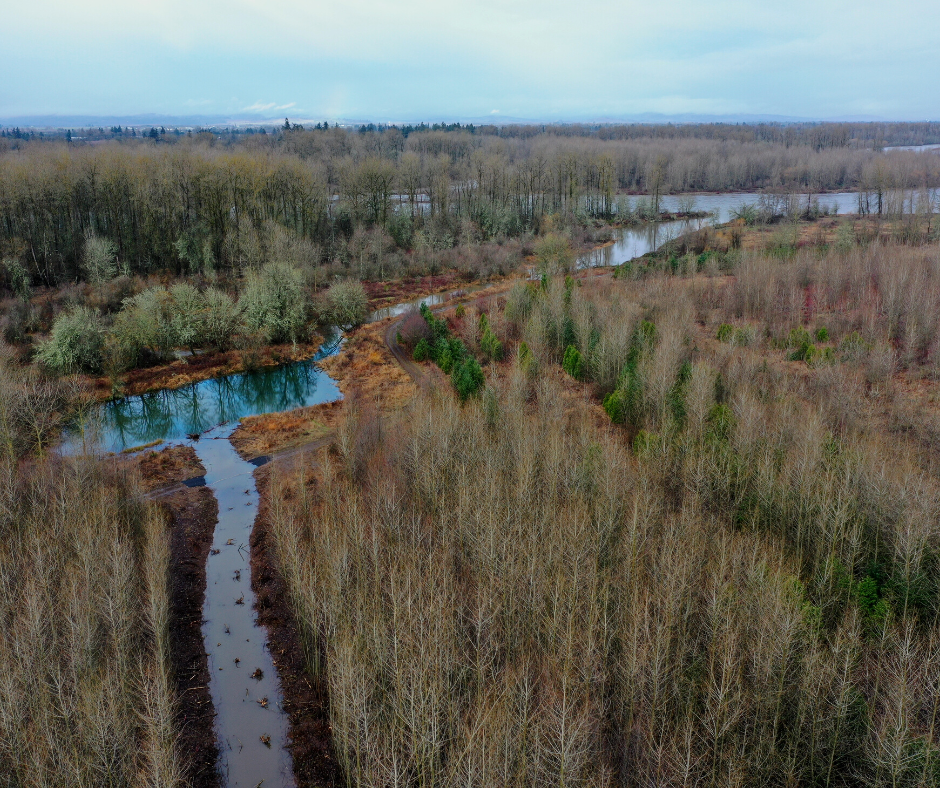
Explore More Stories
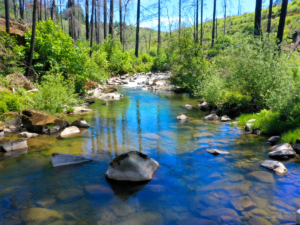
175 Acres Protected Forever on Gate Creek
In May, McKenzie River Trust completed the purchase of 175 acres of high-priority habitat from Weyerhaeuser. This acquisition reflects the strength of thoughtful collaboration between conservation organizations and industry partners as we work to protect special places for Oregon’s communities, who rely on both commercial timber and natural habitats for economic and community health.
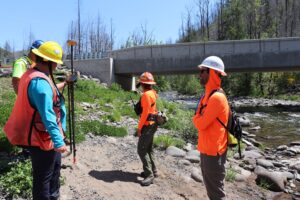
Restoration Underway at Quartz Creek
McKenzie River Trust and partners broke ground on a major floodplain restoration project on Quartz Creek this May. The project aims to reconnect the creek with its historic floodplain, benefiting the ecosystem and the plants, animals, and people who rely on it.
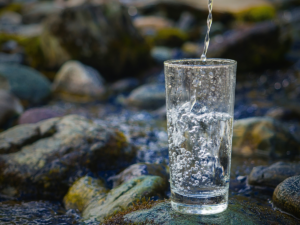
Fifty-five years after the first Earth Day, things continue to improve for air, land, and water.
At times, the uncertainty of changing environmental and political climates can feel insurmountable. Still, across our country, sustained efforts to safeguard land and water have resulted in widespread improvements in the health of our communities. Since the first Earth Day in 1970, these efforts have led to a 78% drop in common air pollutants and widespread improvements to water quality nationally. These changes did not happen because of government regulation alone. They happened because of people like you who have continued to show up, knowing that every action can bring us closer to a better future.
